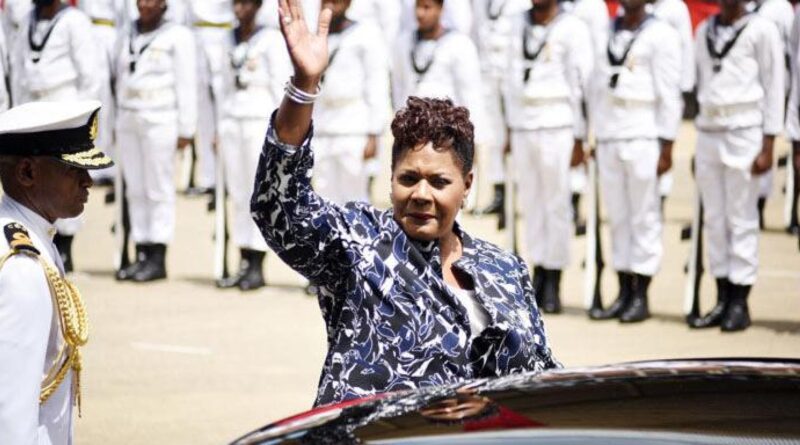Racial behaviour appalling, frightening | Local News | trinidadexpress.com
APPALLED and frightening is how former president Paula-Mae Weekes has described the level of racial abuse on social media during her tenure.
In a pre-recorded interview with Garth St Clair of the Eye on Dependency programme on i95.5fm yesterday, Weekes said when her term began, she took an interest in the comments on social media, which left her in a state of shock.
“I do not think I am different from any citizen for being appalled at what plays out on social media, on a racial basis. I accept that there are many decisions, that I have made as president, that can be subject to scrutiny, discussion, and disagreement. But sometimes when you look at the comments they are so racially biased,” the former president lamented.
Weekes said this sort of behaviour is dangerous for the country, as some feel empowered to display this level of ignorance under anonymity.
“It is very sad, because once we remain polarised, then we cannot come together to achieve anything, and there are many things if we do not come together, would not be achieved. I do not know if our leaders (not only in political spheres) just not seeming to understand that,” she added.
Weekes said this development is a frightening one and if it continues down this path it would not end well.
“What I also found is that after the last elections in 2020, the racial behaviour did not subside, as is the usual pattern and that is what is frightening,” she said.
Presidential powers
On the issue of presidential powers, Weekes said the President has very limited powers and authority.
She explained that the President is not a member of the Government, as the President has a clear separation between governmental powers and certain agencies that Trinidad and Tobago desires to have and keep independent such as the commissions.
Regarding appointments, Weekes indicated that the President is required to act as advised.
“The President is advised and as long as the legal requirements are met, the President must act as advised. You will have questions about, ‘how the President could appoint so and so as a minister?’ Because the President was so advised by the authority to advise that office.
“The person met the legal requirements – it may have to do with age or qualifications and, therefore, the President has to do it,” she said.
Weekes went on to note that the President gets a little bit of power in certain appointments and can identify the person they wish to nominate and then consult with certain bodies about that person.
“The general and most popular consultation is with the Prime Minister and Leader of the Opposition. Whenever the President consults with the Prime Minister, the President also must, by law, consult with the Leader of the Opposition.
“So a name is sent forward for a particular position and then both of these parties are invited to let the President know what they think,” she said.
Weekes said the only appointments the President has absolute discretion on are independent senators, lay assessors of the Equal Opportunity Tribunal, and the Sentencing Commission.
“If persons understand these limits and that the President is a creature of statute (they would understand) the President can only legally do what is written down in law. The President cannot act outside of the law, in terms of legal unconstitutional duties,” she emphasised.
Asked by St Clair during the interview what she would like to see added to the President’s role, Weekes said, “If you are asking the President to be responsible for identifying people nominated to hold certain independent, very responsible and very weighty offices, I think the President should be enabled to do more than go shoo-shooing around, asking people, ‘what you know about X?’”
She said the President had a mechanism where certain checks could be made, where officially, the President can send out people to talk to the person’s co-workers, if necessary their neighbours, then it would help the President have a clearer picture and a better grasp of the people before they are nominated.
“To me, that would be the biggest of the things that should be done at the Office of the President,” she said.
On March 20, former Senate president Christine Kangaloo succeeded Weekes as President, the seventh in the country’s history.

